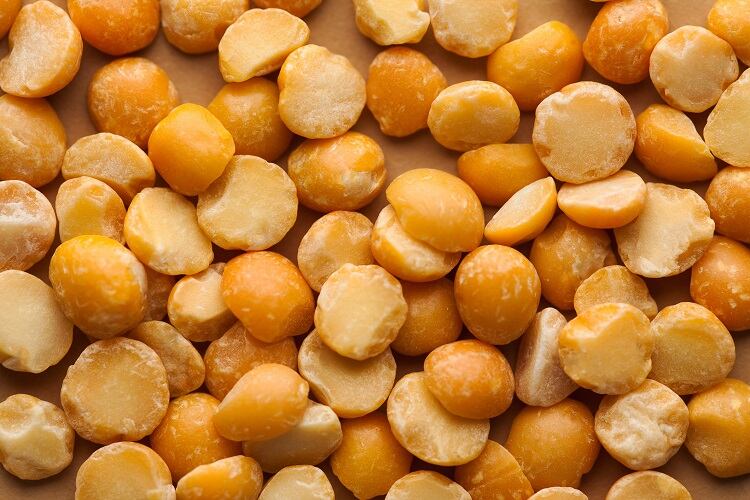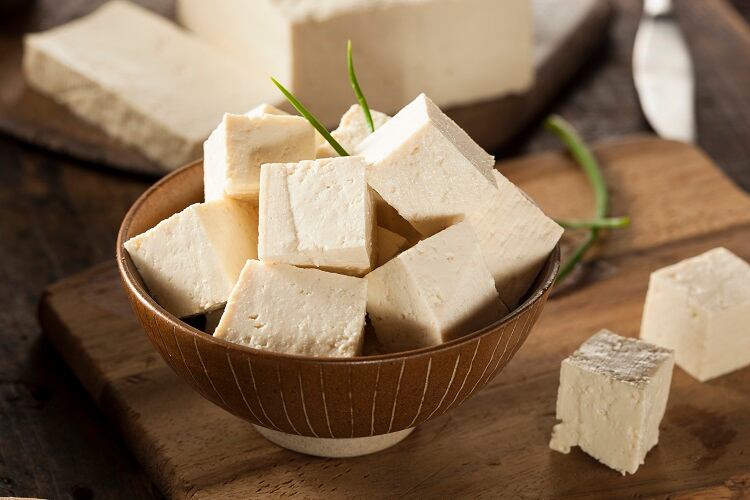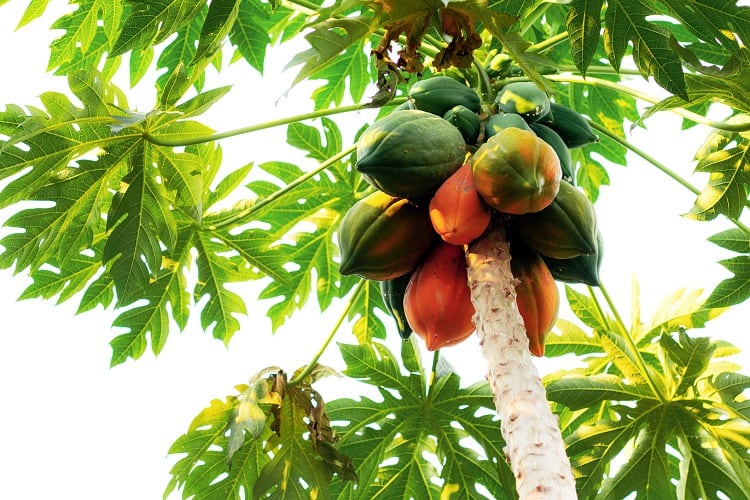The UK meat alternative market, which was valued at $489m in 2019, is expected to reach $727m in 2025, according to Grand View Research.
Within this market, categories are growing at varying rates. Tofu – made from condensed soy milk – is regarded the third-fastest growing, behind seitan and mycoprotein.
It is this category that start-up Peafu is attempting to disrupt. The UK start-up has developed an alternative to the soy-based product made from locally grown yellow peas.
“We’re the new kid on the block,” founder Tor Kemp told investors at the recent Plant Based Summit hosted by start-up network Bread & Jam, “offering a sustainable addition to the meat alternative landscape.”
Upcycling feed for food
Although originally hailing from China, conventional tofu is also a staple of Indonesian, Japanese, Korean, Vietnamese, Singaporean, Thai, and Filipino cuisines. As a meat alternative, it has also well and truly infiltrated into modern western cooking.
From an environmental standpoint, however, tofu may not be the silver bullet flexitarians had hoped it would be. For the most part, tofu is produced from soybeans grown abroad.
Global soy production is estimated at close to 250m metric tonnes per year, with the US, Brazil, and Argentina accounting for approximately 80% of production. Yet just 2% of the global soy market adheres to zero deforestation and conversion standards as stipulated by certification body Roundtable on Responsible Soy (RTRS).

Peafu is taking a more local approach to tofu production. The start-up says it “offers an alternative to soya-based tofu, which depends on imported soybeans. At the heart of Peafu is an ethos to be part of a sustainable, local food system”.
The secret to Peafu’s innovation is the humble pea. “Peafu is simple: it is tofu made from [yellow] peas,” explained Kemp, a tropical forest ecologist by training. “But not just any peas: highly nutritious, locally-grown, food-grade quality peas that otherwise end up as animal feed.”
These peas are grown ‘all across the UK’, the founder continued, but until now, have yet to find a consumer market.
High-growth potential for ‘sustainable’ and ‘healthy’ product
From another sustainability angle, the British peas provide local benefits. According to the start-up, pea root nodules fix atmospheric nitrogen. “As ‘soil improvers’, they are a valuable addition to crop rotation, and reduce the need for synthetic fertilisers on UK farms.”
Peafu also offers nutritional gains, as a source of plant-based protein, vitamins, and minerals, including B vitamins, phosphorous and phytonutrients.
And from a flavour perspective, the Peafu – which is designed to be a ‘flexible cooking product’ – will be ‘very tasty’, said the founder. The first line will include a natural, smoked, and value-added Peafu, she revealed.

Kemp predicts high-growth rate potential for the pea-based offering. “We’ve done our research, we understand the supply chain, the marketplace, and the opportunity,” she told investors.
“Innovation in a currently soy-dominated, plant-based marketplace will translate into high-growth rate potential for Peafu. And we’ll attain this growth, while staying true to our ethos – so providing healthy, sustainable options.
“We’ll continue to grow as other, less healthy plant-based options – which are high in salt and high in fat – begin to lose favour.”
So who is the target market?
With tofu the third-fastest category within the meat alternative market, and Peafu offering an alternative to that category, it is fair to ask: who is Peafu’s target audience? Flexitarians or tofu fans?
It is an ‘inclusive product’, said the Peafu founder, that is aiming to reach vegans, as well as flexitarians. According to the company’s consumer research, which surveyed vegan, vegetarian, and flexitarian consumers, 99% of respondents said they are ‘really keen’ to try the product.
“We’ve done the market research and we really understand what the consumer wants,” the founder elaborated. “This has allowed us to create a detailed product design and we’ve secured initial investment to take Peafu on the next steps of the journey – to refine and transform into large-scale manufacture.”
Concerning commercialisation, Peafu will be sold via retail and foodservice channels. The start-up aims to raise £150,000 in its first investment round to ensure a 2022 launch. This investment will also help Peafu finalise its product recipe, develop the brand, and build its profile prior to launch. “Our vision is to generate £5m in sales by year four,” Kemp added.



